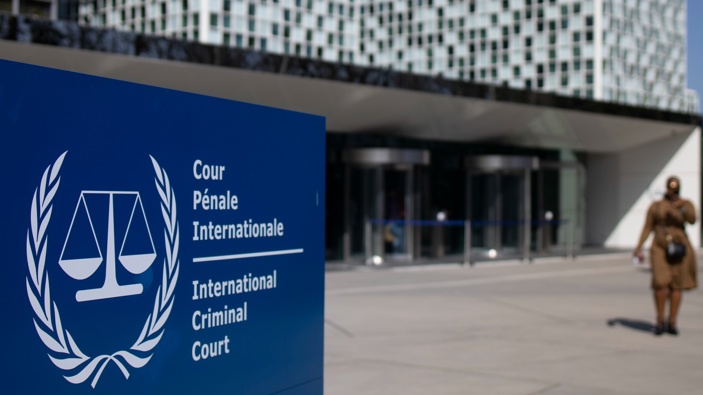Follow
the podcast on

A Dutch intelligence agency said Thursday that it foiled a sophisticated attempt by a Russian spy using a false Brazilian identity to work as an intern at the International Criminal Court, which is investigating allegations of Russian war crimes in Ukraine.
The General Intelligence and Security Service of the Netherlands said the 36-year-old man, identified as Sergey Vladimirovich Cherkasov, worked for Russia's shadowy GRU agency and tried to gain access to the global court based in The Hague under the cover name of Viktor Muller Ferreira.
“If the intelligence officer had succeeded in gaining access as an intern to the ICC, he would have been able to gather intelligence there and to look for (or recruit) sources, and arrange to have access to the ICC’s digital systems,” the Dutch agency said. “That way he would have been able to provide a significant contribution to the intelligence that the GRU is seeking. He might also have been able to influence criminal proceedings of the ICC.”
The agency said it uncovered his identity and informed the Netherlands' immigration service in April that he was considered a national security threat.
“On these grounds, the intelligence officer was refused entry into the Netherlands in April and declared unacceptable. He was sent back to Brazil on the first flight out,” the agency, known by its acronym AIVD, said. It did not reveal how it unmasked the spy.
In March, ICC Prosecutor Karim Khan opened an investigation in Ukraine, where Russian forces have been accused of war crimes. The court also is investigating alleged crimes committed during the 2008 Russo-Georgian War and has issued arrest warrants for three men who served in the Russian-backed self-declared republic of South Ossetia.
Court spokeswoman Sonia Robla said the ICC “was briefed by the Dutch authorities and is very thankful to the Netherlands for this important operation and more generally, for exposing security threats.”
She said as the court's host state, “the role of the Dutch authorities is key in the protection of the ICC headquarters. The ICC takes these threats very seriously and will continue to work and cooperate with the Netherlands.”
In a statement about the foiled bid to infiltrate the ICC, the Dutch intelligence agency said Cherkasov used “a well-constructed cover identity by which he concealed all his ties with Russia in general, and the GRU in particular.”
It said he was an “illegal” agent “who received long and extensive training." The Dutch agency even released a redacted document, dated around 2010, in which he lays out his fabricated backstory.
“Because of their alias identity, illegals are difficult to discover,” the AIVD said. “For that reason they often remain undetected, allowing them to carry out intelligence activities. Because they present themselves as foreigners, they have access to information that would be inaccessible to a Russian national.”
It is not the first time Russian spies have attempted to infiltrate an international organization in The Hague.
In 2018, the Dutch defense minister accused GRU spies of attempted cybercrimes targeting the Organization for the Prohibition of Chemical Weapons and an international investigation into the 2014 downing of Malaysia Airlines flight MH17 over eastern Ukraine. The probe said the plane was brought down by a missile was driven into Ukraine from a Russian military base and fired from territory controlled by pro-Moscow separatists. Russia denies involvement.
Earlier this year, after Russia's Feb. 24 invasion of Ukraine, the Netherlands was one of several European nations that expelled Russians believed linked to espionage. The Netherlands kicked out 17 Russians who it described as intelligence officers masquerading as diplomats.
- by Mike Corder, AP
Take your Radio, Podcasts and Music with you









